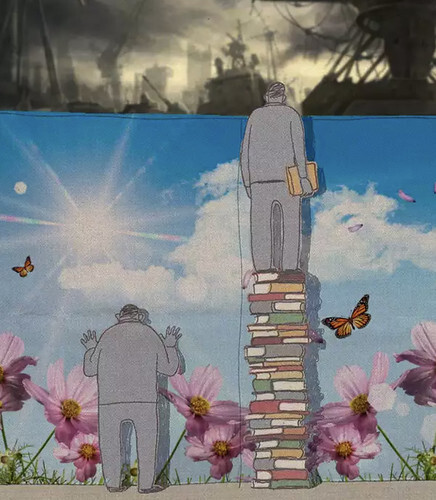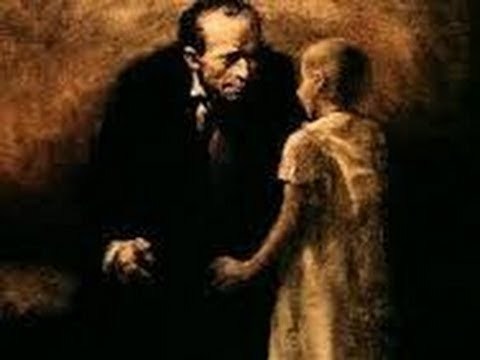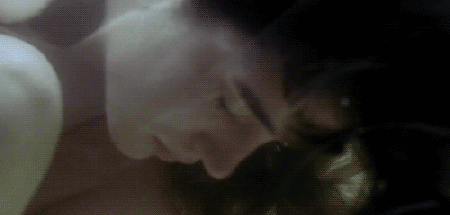What do you think?
Rate this book


64 pages, Paperback
First published January 1, 1877

Sorrow compressed my heart, and I felt I would die, and then . . . Well, then I woke up.

‘I was so utterly indifferent to everything that I was anxious to wait for the moment when I would not be so indifferent and then kill myself.’
‘if I had really decided to do away with myself that night, everything in the world should have been more indifferent to me than ever…It was clear to me that so long as I was still a human being and not a meaningless zero, and till I became a zero, I was alive, and consequently able to suffer, be angry, and feel shame at my actions. Very well. But if, on the other hand, I were going to kill myself in, say, two hours, what did that little girl matter to me and what did I care for shame or anything else in the world?’
‘They began to struggle for separation, for isolation, for individuality, for mine and thine. They began to talk in different languages. They became acquainted with sorrow and loved sorrow; they thirsted for suffering, and said that truth could only be attained through suffering. Then science appeared. As they became wicked they began talking of brotherhood and humanitarianism, and understood those ideas. As they became criminal, they invented justice and drew up whole legal codes in order to observe it, and to ensure their being kept, set up a guillotine. They hardly remembered what they had lost, in fact refused to believe that they had ever been happy and innocent. They even laughed at the possibility of this happiness in the past, and called it a dream.’



In old days I used to be miserable at seeming ridiculous. Not seeming, but being. I have always been ridiculous, and I have known it, perhaps, from the hour I was born. Perhaps from the time I was seven years old I knew I was ridiculous. Afterwards I went to school, studied at the university, and, do you know, the more I learned, the more thoroughly I understood that I was ridiculous.
And at last I saw and knew the people of this happy land. That came to me of themselves, they surrounded me, kissed me. The children of the sun, the children of their sun – oh, how beautiful they were! Never had I seen on our own earth such beauty in mankind. Only perhaps in our children, in their earliest years, one might find, some remote faint reflection of this beauty. The eyes of these happy people shone with a clear brightness. Their faces were radiant with the light of reason and fullness of a serenity that comes of perfect understanding, but those faces were gay; in their words and voices there was a note of childlike joy. Oh, from the first moment, from the first glance at them, I understood it all! It was the earth untarnished by the Fall; on it lived people who had not sinned.
They began to struggle for separation, for isolation, for individuality, for mine and thine. They began to talk in different languages. They became acquainted with sorrow and loved sorrow; they thirsted for suffering, and said that truth could only be attained through suffering. Then science appeared. As they became wicked they began talking of brotherhood and humanitarianism, and understood those ideas. As they became criminal, they invented justice and drew up whole legal codes in order to observe it, and to ensure their being kept, set up a guillotine. They hardly remembered what they had lost, in fact refused to believe that they had ever been happy and innocent. They even laughed at the possibility of this happiness in the past, and called it a dream.
قلتُ: فليكن الحبُ فى الأرض. لكنه لم يكن!
قلتُ: فليذهب النهرُ فى البحرُ. والبحر فى السحبِ.
والسحب فى الجدبِ. والجدبُ فى الخصبِ. ينبت
خبزاً ليسندَ قلب الجياع. وعشباً لماشية
الأرض. ظلا لمن يتغربُ فى صحراء الشجنْ.
ورأيتُ ابن آدم – ينصب أسواره حول مزرعة
الله. يبتاع من حوله حرسا. ويبيع لإخوته
الخبز والماء. يحتلبُ البقراتِ العجاف لتعطى اللبن.
* * *
قلتُ فليكن الحب فى الأرض. لكنه لم يكن.
أصبح الحب ملكاً لمن يملكون الثمن!
.. .. .. .. ..
ورأى الربُّ ذلك غير حسنْ!
***
قلت: فليكن العدلُ فى الأرض؛ عين بعين وسن بسن.
قلت: هل يأكل الذئب ذئباً. أو الشاه شاة؟
ولا تضع السيف فى عنق اثنين: طفل.. وشيخ مسن.
ورأيتُ ابن آدم يردى ابن آدم. يشعل فى
المدن النارَ. يغرسُ خنجرهُ فى بطون الحواملِ.
يلقى أصابع أطفاله علفا للخيول. يقص الشفاه
وروداً تزين مائدة النصر.. وهى تئن.
أصبح العدل موتاً. وميزانه البندقية. أبناؤهُ
صلبوا فى الميادين. أو شنقوا فى زوايا المدن.
قلت: فليكن العدل فى الأرض.. لكنه لم يكن.
أصبح العدل ملكاً لمن جلسوا فوق عرش الجماجم بالطيلسان –
الكفن!
… … …
ورأى الرب ذلك غير حسنْ!
* * *
قلت: فليكن العقل فى الأرض..
تصغى إلى صوته المتزن.
قلت: هل يبتنى الطير أعشاشه فى فم الأفعوان.
هل الد��د يسكن فى لهب النار. والبوم هل
يضع الكحل فى هدب عينيه. هل يبذر الملح
من يرتجى القمح حين يدور الزمن؟
* * *
ورأيت ابن آدم وهو يجن. فيقتلع الشجر المتطاول.
يبصق فى البئر يلقى على صفحة النهر بالزيت.
يسكن فى البيت؛ ثم يخبئ فى أسفل الباب
قنبلة الموت. يؤوى العقارب فى دفء أضلاعه.
ويورث أبناءه دينه.. واسمه.. وقميص الفتن.
أصبح العقل مغترباً يتسول. يقذفه صبية
بالحجارة. يوقفه الجند عند الحدود. وتسحب
منه الحكومات جنسية الوطنى.. وتدرجه فى
قوائم من يكرهون الوطن.
قلت: فليكن العقل فى الأرض. لكنه لم يكن.
سقط العقل فى دورة النفى والسجن.. حتى يجن
… … … …
ورأى الرب ذلك غير حسن!
(الإصحاح الرابع)
قلت: فلتكن الريح فى الأرض؛ تكنس هذا العفن
قلت: فلتكن الريح والدم… تقتلع الريح هسهسة؟
الورق الذابل المتشبث. يندلع الدم حتى
الجذور فيزهرها ويطهرها. ثم يصعد فى
السوق.. والورق المتشابك. والثمر المتدلى؛
فيعصره العاصرون نبيذاً يزغرد فى كل دن.
قلت: فليكن الدم نهراً من الشهد ينساب تحت فراديس عدن.
هذه الأرض حسناء. زينتها الفقراء لهم تتطيب.
يعطونها الحب. تعطيهم النسل والكبرياء.
قلت: لا يسكن الأغنياء بها. الأغنياء الذين
يصوغون من عرق الأجراء نقود زنا.. ولآلئ
تاج. وأقراط عاج.. ومسبحة للرياء.
إننى أول الفقراء الذين يعيشون مغتربين؛
يموتون محتسبين لدى العزاء.
قلت: فلتكن الأرض لى.. ولهم!
(وأنا بينهم)
حين أخلع عنى ثياب السماء.
فأنا أتقدس – فى صرخة الجوع – فوق الفراش الخشن!
(الإصحاح الخامس)
حدقت فى الصخر؛ وفى الينبوع
رأيت وجهى فى سمات الجوع!
حدقت فى جبينى المقلوب
رأيتنى : الصليب والمصلوب
صرخت – كنت خارجاً من رحم الهناءة
صرخت؛ أطلب البراءة
كينونتى: مشنقتى
وحبلى السرى:
حبلها
المقطوع!



‘You’re not Dostoevsky,’ said the citizeness, who was getting muddled by Koroviev.
‘Well, who knows, who knows,’ he replied.
‘Dostoevsky’s dead,’ said the citizeness, but somehow not very confidently.
‘I protest!’ Behemoth exclaimed hotly. ‘Dostoevsky is immortal!’
― Mikhail Bulgakov, The Master and Margarita
When they became wicked, they began to talk of brotherhood and humaneness and understood these ideas. When they became criminal, they invented justice and prescribed whole codices for themselves in order to maintain it, and to ensure the codices they set up the guillotine. (12)



“Only perhaps in our children, in their earliest years, one might find, some remote faint reflection of this beauty."
"They hardly remembered what they had lost, in fact refused to believe that they had ever been happy and innocent. They even laughed at the possibility of this happiness in the past, and called it a dream."
"Oh, at first perhaps it began innocently, with a jest, coquetry, with amorous play, perhaps indeed with a germ, but that germ of falsity made its way into their hearts and pleased them. Then sensuality was soon begotten, sensuality begot jealousy, jealousy — cruelty … Oh, I don't know, I don't remember; but soon, very soon the first blood was shed."
“But since I grew to manhood, I have for some unknown reason become calmer, though I realized my awful characteristic more fully every year. I say 'unknown', for to this day I cannot tell why it was. Perhaps it was owing to the terrible misery that was growing in my soul through something which was of more consequence than anything else about me: that something was the conviction that had come upon me that nothing in the world mattered.”
"You see, though nothing mattered to me, I could feel pain, for instance. If anyone had stuck me it would have hurt me. It was the same morally: if anything very pathetic happened, I should have felt pity just as I used to do in old days when there were things in life that did matter to me. I had felt pity that evening. I should have certainly helped a child. Why, then, had I not helped the little girl? Because of an idea that occurred to me at the time: when she was calling and pulling at me, a question suddenly arose before me and I could not settle it. The question was an idle one, but I was vexed. I was vexed at the reflection that if I were going to make an end of myself that night, nothing in life ought to have mattered to me. Why was it that all at once I did not feel a strange pang, quite incongruous in my position."
“Dreams seem to be spurred on not by reason but by desire, not by the head but by the heart, and yet what complicated tricks my reason has played sometimes in dreams, what utterly incomprehensible things happen to it!
"As they became wicked they began talking of brotherhood and humanitarianism, and understood those ideas. As they became criminal, they invented justice and drew up whole legal codes in order to observe it, and to ensure their being kept, set up a guillotine."
“And yet how simple it is: in one day, in one hour everything could be arranged at once! The chief thing is to love others like yourself, that’s the chief thing, and that’s everything; nothing else is wanted — you will find out at once how to arrange it all.”
Ha! Throughout the entire story of extremely small print pages, my first thought was, this guy is writing at 100 miles per hour like his thoughts were just exploding from his mind....or that's how it felt to me. His writing so intense, the story so deep that it was almost as if FD was the Ridiculous Man and the dream had happened to him.
At first, I didn't like the character or his pathetic view of the world, especially after his treatment of the desperate little girl, but I knew he too was desperate and troubled as we learn early on of his suicidal plan (no spoiler here) so did feel empathy for him.
Then, after the spiritual dream and his reflection of having seen the truth, his turnabout kind of reminded me of Scrooge and his awakening with a total new outlook on life and the world. Simplistic comparison, but how I will remember this complex character and philosophic read with its religious undertones.
The message here, for me, is love others as you love yourself and enjoy every day above ground to the fullest.
Was so glad for the last line in the novella.